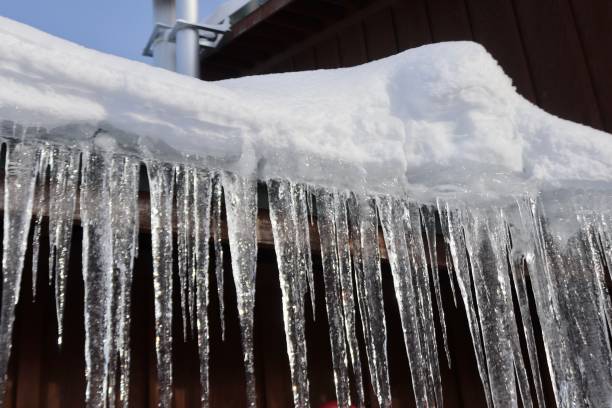Essential Strategies for Avoiding Frozen Plumbing in Cold Weather
Visit My SiteHow do you actually feel in relation to Preventing and dealing with frozen pipes?
:strip_icc()/snow-outdoor-faucet-pipes-4af65d1e5e904fb1aa7bf74071fe5d89.jpg)
Winter can ruin your plumbing, particularly by freezing pipelines. Below's exactly how to avoid it from taking place and what to do if it does.
Intro
As temperature levels decline, the threat of frozen pipes increases, possibly causing expensive repair work and water damages. Recognizing exactly how to prevent icy pipes is crucial for home owners in cold environments.
Comprehending Icy Pipes
What creates pipes to ice up?
Pipes freeze when revealed to temperatures listed below 32 ° F (0 ° C) for expanded periods. As water inside the pipelines freezes, it broadens, taxing the pipe wall surfaces and possibly causing them to burst.
Dangers and problems
Icy pipelines can result in water supply disruptions, property damage, and costly fixings. Burst pipes can flooding homes and cause considerable structural damage.
Indications of Frozen Pipeline
Identifying frozen pipelines early can prevent them from bursting.
Exactly how to identify frozen pipes
Look for decreased water flow from taps, uncommon smells or noises from pipelines, and noticeable frost on subjected pipelines.
Avoidance Tips
Protecting vulnerable pipelines
Wrap pipelines in insulation sleeves or use warmth tape to secure them from freezing temperatures. Focus on pipelines in unheated or outside locations of the home.
Heating methods
Maintain interior rooms sufficiently warmed, especially locations with pipes. Open cabinet doors to enable cozy air to circulate around pipes under sinks.
Securing Exterior Pipes
Yard hoses and outdoor faucets
Detach and drain pipes yard pipes prior to winter season. Set up frost-proof faucets or cover outdoor faucets with protected caps.
What to Do If Your Pipelines Freeze
Immediate activities to take
If you believe frozen pipes, keep faucets open to eliminate stress as the ice melts. Utilize a hairdryer or towels taken in warm water to thaw pipes gradually.
Long-Term Solutions
Structural modifications
Think about rerouting pipelines away from outside wall surfaces or unheated areas. Include additional insulation to attics, cellars, and crawl spaces.
Upgrading insulation
Buy high-quality insulation for pipelines, attics, and wall surfaces. Proper insulation aids maintain regular temperatures and minimizes the risk of frozen pipelines.
Conclusion
Stopping icy pipes needs aggressive measures and quick feedbacks. By understanding the causes, indications, and safety nets, home owners can protect their plumbing during cold weather.
Helpful Tips to Prevent Frozen Pipes this Winter
UNDERSTANDING THE BASICS: WHY PIPES FREEZE AND WHY IT’S A PROBLEM
Water freezing inside pipes is common during the winter months, but understanding why pipes freeze, and the potential problems it can cause is crucial in preventing such incidents. This section will delve into the basics of why pipes freeze and the associated problems that may arise.
THE SCIENCE BEHIND FROZEN PIPES
When water reaches freezing temperatures, it undergoes a physical transformation and solidifies into ice. This expansion of water as it freezes is the primary reason pipes can burst. As the water inside the pipe freezes, it expands, creating immense pressure on the walls. If the pressure becomes too great, the pipe can crack or rupture, leading to leaks and water damage.
FACTORS THAT CONTRIBUTE TO PIPE FREEZING
Low Temperatures: Extremely cold weather, especially below freezing, increases the risk of pipes freezing. Uninsulated or Poorly Insulated Pipes: Pipes located in unheated areas, such as basements, crawl spaces, or attics, are more prone to freezing. Insufficient insulation or lack of insulation altogether exacerbates the problem. Exterior Wall Exposure: Pipes running along exterior walls are susceptible to freezing as they encounter colder temperatures outside. Lack of Heating or Temperature Regulation: Inadequate heating or inconsistent temperature control in your home can contribute to frozen pipes. PROBLEMS CAUSED BY FROZEN PIPES
- Pipe Bursting: As mentioned earlier, the expansion of water as it freezes can cause pipes to burst, resulting in significant water damage.
- Water Damage: When pipes burst, it can lead to flooding and water damage to your property, including walls, ceilings, flooring, and personal belongings.
- Structural Damage: Prolonged exposure to water from burst pipes can compromise the structural integrity of your home, leading to costly repairs.
- Mold and Mildew Growth: Excess moisture from water damage can create a favorable environment for mold and mildew growth, posing health risks to occupants.
- Disrupted Water Supply: Frozen pipes can also result in a complete or partial loss of water supply until the issue is resolved.
WHY CERTAIN PIPES ARE MORE PRONE TO FREEZING
- Location: Pipes located in unheated or poorly insulated areas, such as basements, crawl spaces, attics, or exterior walls, are at higher risk of freezing.
- Exterior Pipes: Outdoor pipes, such as those used for irrigation or exposed plumbing, are particularly vulnerable to freezing as they are directly exposed to the elements.
- Supply Lines: Pipes that carry water from the main water supply into your home, including the main water line, are critical to protect as freezing in these lines can affect your entire plumbing system.
- Underground Pipes: Pipes buried underground, such as those connected to sprinkler systems or outdoor faucets, can be susceptible to freezing if not properly insulated.
https://busybusy.com/blog/helpful-tips-to-prevent-frozen-pipes-this-winter/

I hope you liked our article about 6 Ways to Prevent Frozen Pipes. Thanks so much for finding the time to read our piece. So long as you enjoyed our blog post plz remember to pass it around. I am grateful for your time. Return soon.
Go Deal Now